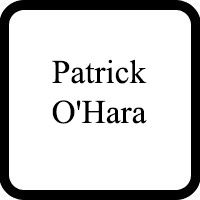Rosemont RICO Act Lawyer, New Jersey
Sponsored Law Firm
-
 x
x

Click For More Info:
-
The Law Offices of Richard L. Cooper, P.A.
848 Brickell Avenue Suite 800 Miami, FL 33131» view mapDWI/DUI, Drug Trafficking, Felony Nationally Ranked Top 40 Under 40
With Richard L. Cooper you can expect a trusted confidant who will work diligently to fully understand your case and determine a road map to help you regain control of your life.
800-756-2781
Not enough matches for Rosemont RICO Act lawyer.
Below are all Rosemont Criminal lawyers.
Patrick C. O'Hara
✓ VERIFIEDAccident & Injury, Personal Injury, Workers' Compensation, Criminal, Juvenile Law
Patrick C. O'Hara is a practicing lawyer in the state of New Jersey.
Sharon Brennan Ransavage
Juvenile Law, Traffic, Divorce & Family Law, Criminal
Status: In Good Standing Licensed: 44 Years
David G. Evans
Class Action, DUI-DWI, Criminal, Civil Rights
Status: In Good Standing Licensed: 50 Years
Jeffrey M Gonzalez
Family Law, DUI-DWI, Criminal, Personal Injury, Car Accident
Status: In Good Standing Licensed: 35 Years

 Richard L. Cooper Miami, FL
Richard L. Cooper Miami, FL AboutMiami Attorney at Law
AboutMiami Attorney at Law ServicesCriminal Defense
ServicesCriminal Defense

